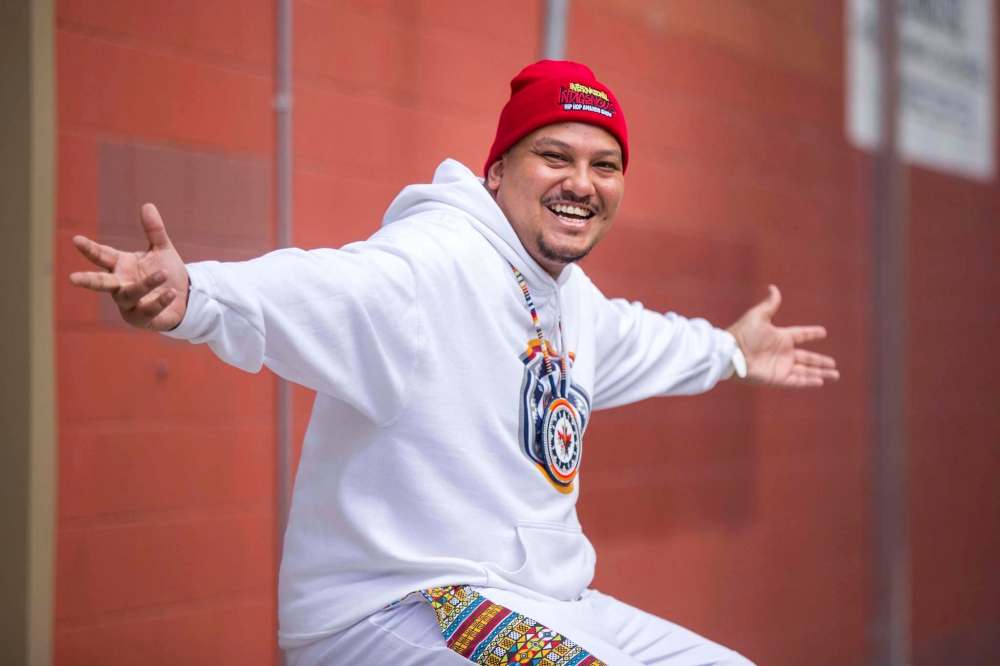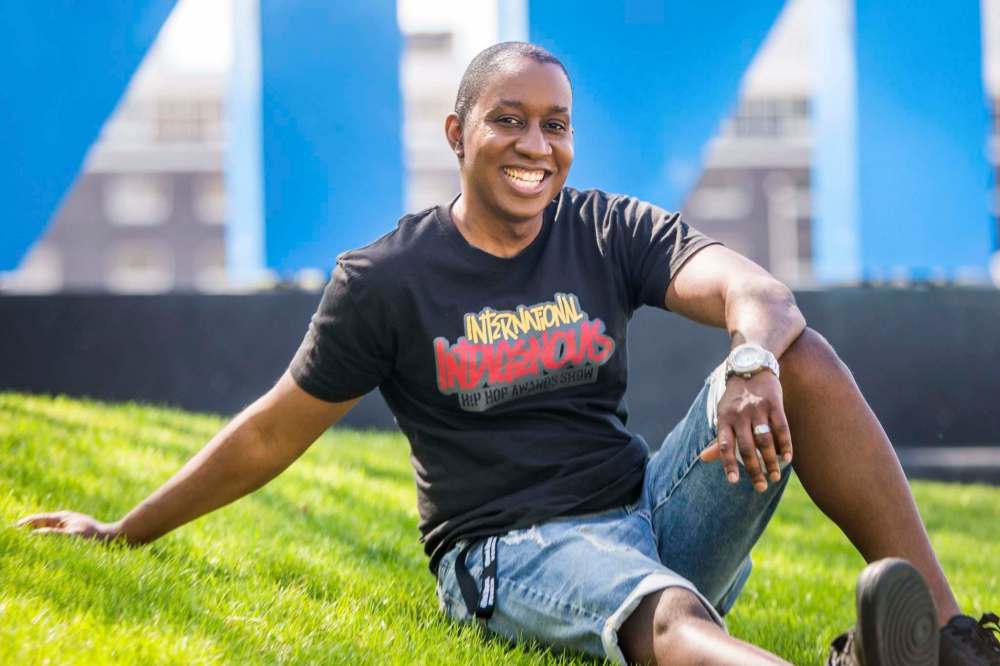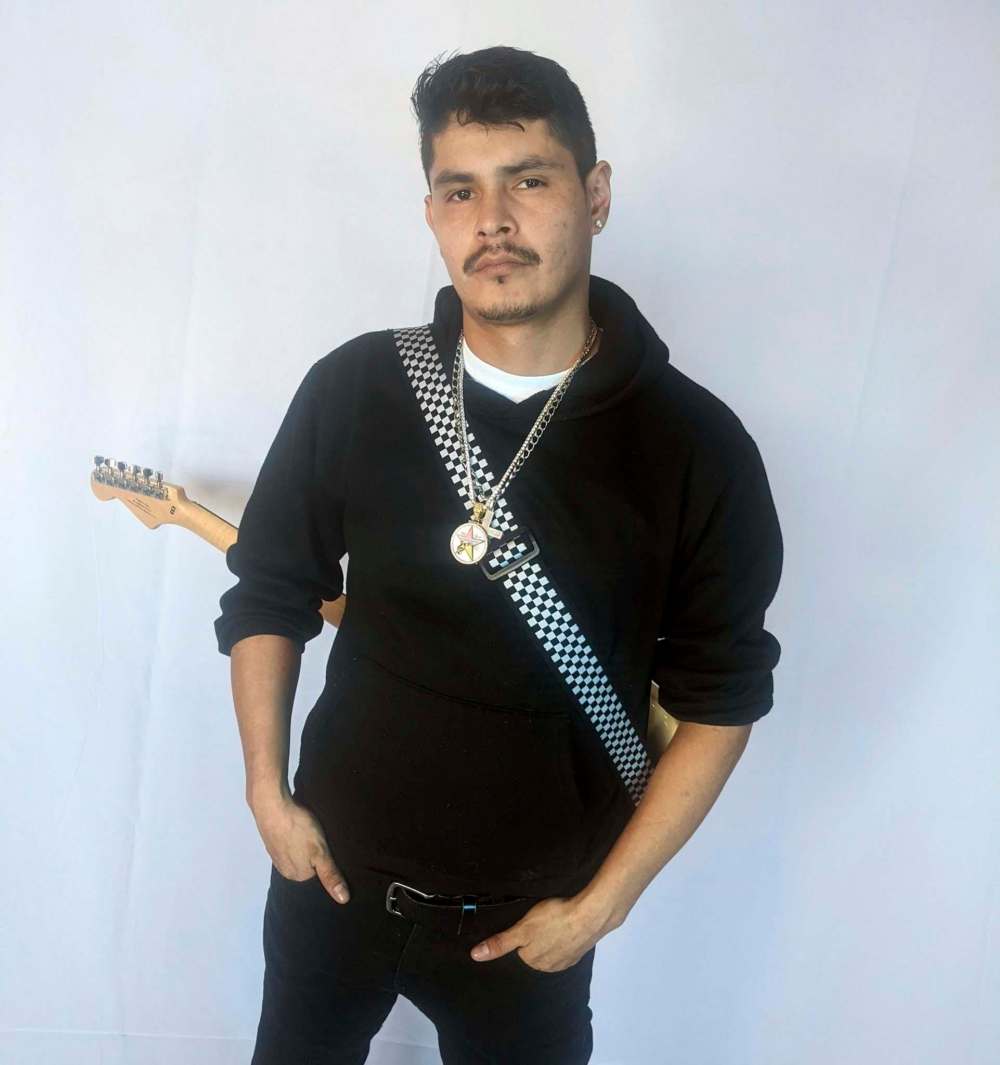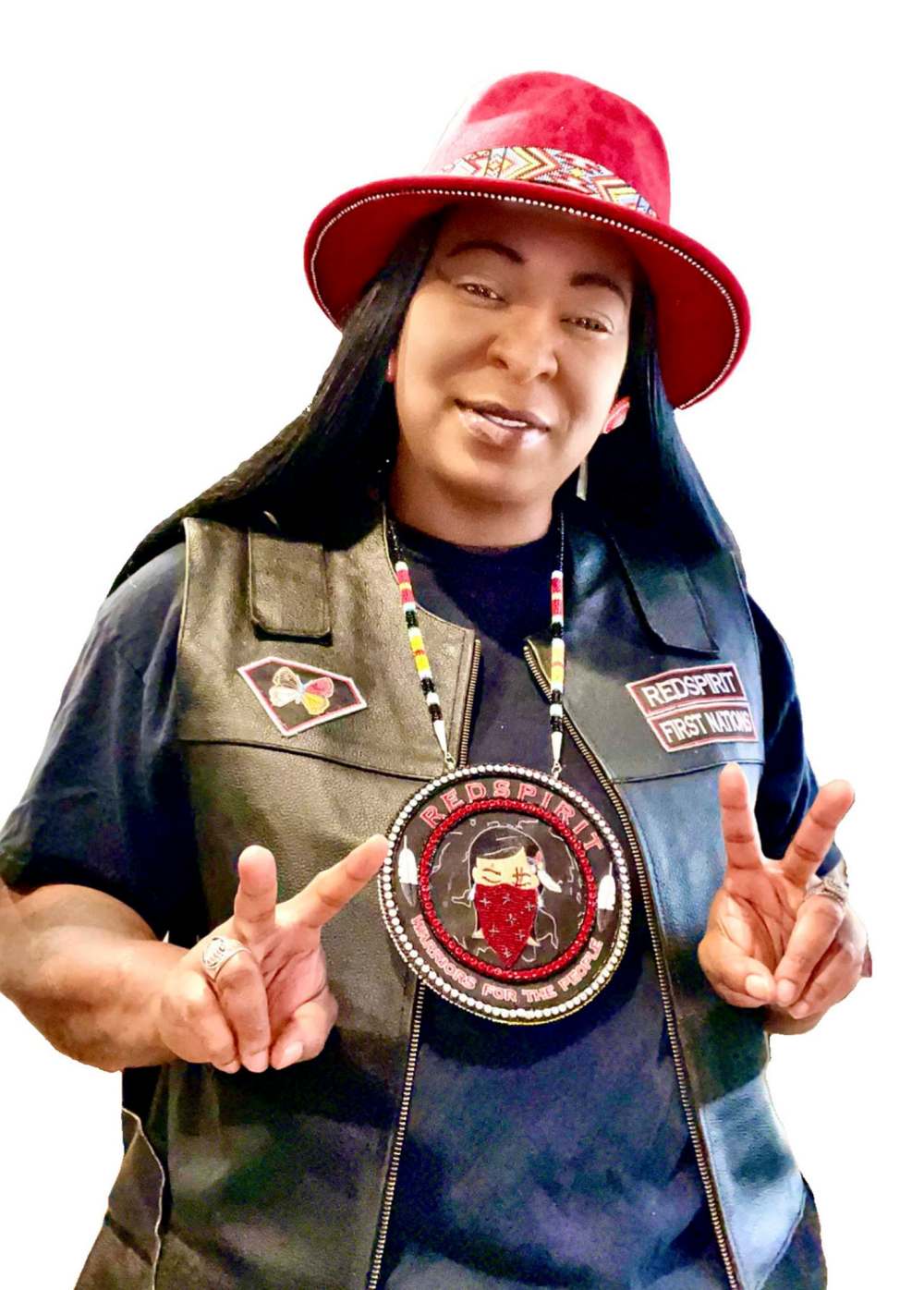On top of hip hop
City artist in running for first International Indigenous Hip Hop Awards
Advertisement
Read this article for free:
or
Already have an account? Log in here »
To continue reading, please subscribe:
Monthly Digital Subscription
$1 per week for 24 weeks*
- Enjoy unlimited reading on winnipegfreepress.com
- Read the E-Edition, our digital replica newspaper
- Access News Break, our award-winning app
- Play interactive puzzles
*Billed as $4 plus GST every four weeks. Offer only available to new and qualified returning subscribers. Cancel any time.
Read unlimited articles for free today:
or
Already have an account? Log in here »
Hey there, time traveller!
This article was published 21/05/2021 (1351 days ago), so information in it may no longer be current.
When Sly Skeeta was told he was a nominee for the inaugural International Indigenous Hip Hop Awards this year, he was prouder than proud, ecstatic, shocked, elated, nervous, in disbelief.
It was a pinch-me moment after more than a decade of dreaming and paying his dues, only the pinch didn’t come, meaning the spirited artist and humble family man was really, truly up for Breakthrough Artist of the Year for his song Get Hot.
In a field loaded with talented performers from Indigenous communities around the world, he had to start his award campaign quickly.

Like any good hip-hop promoter, he made social media posts calling for fans to vote for him online, and used an “old-school tactic,” making more than 100 posters at Kendrick’s Printing on Portage Avenue. He put them up all throughout the downtown — at Cavalier Hair Design, his home barbershop, at Dominion News, at convenience stores and on street bulletins, pretty much anywhere he could.
He was promoting himself, but he saw it more as promoting the inaugural edition of the awards show, along with his fellow nominees and what they had to say with their music.
“Part of being an MC is getting the word out there,” says Skeeta, whose given name is Sal Ibrahim and whose parents come from Skownan First Nation and East Africa. “You don’t want to say you didn’t give it your best try.”
On Sunday, Skeeta, along with dozens of Indigenous nominees across the world, from Jamaica to Saskatchewan and Australia to Indiana, will find out whether their best is enough to win in a virtual awards ceremony.
But winning is only part of the goal: being heard, seen and celebrated is the main reason the award show even started.
“A lot of these Indigenous artists were needing support, recognition and guidance,” says Winnipeg’s Chris Sharpe, who co-founded the event with Indigenous industry veterans Christie Charles (MissChristie Lee), Paul Robert Sawan (K.A.S.P.), and William Pierson, also known as Jon-C, a local hip-hop mainstay and performer in groups including Winnipeg’s Most. “This is all designed to shine a light and share with the world the incredible hip hop being made by Indigenous people everywhere.”
The awards show is the main draw, but over the course of two days, the event — taking place in an online platform called Accelevents — will feature workshops in fields such as marketing, songwriting and mental health, helping artists build their brand while also expanding their skills and connecting with music professionals around the globe, says Sharpe.
A trade show Saturday will also promote collaboration and allow artists to sell merchandise, with several performances scheduled throughout the day. Meet-and-greets with artists such as New York MC Masta Ace, Chino XL and Blahzay Blahzay, and a keynote speech from legendary Indigenous hip-hop photographer “Brother Ernie” Paniccioli are sure to be popular.
Tickets start at $5.99, and Sharpe says using Google Chrome as a browser makes for a seamless experience for participants.

Sharpe, a do-it-all pro who’s the event’s marketing director, says it has been in the works for more than two years. Originally, it was supposed to happen last year in person in Winnipeg, but a pesky virus foiled those plans. Organizers rebuilt the event online, spreading the word and having hundreds of submissions come in for nominations, performances and virtual booths. “This has never been done before, so we’ve been learning as we go along,” he says.
In recent years, the lack of diversity at music and other award shows has been acknowledged as a significant problem, and Sharpe says in many cases, that’s meant the industry has been playing catch-up.
“That’s not what we’re doing here,” he says. “We’re trying to showcase what’s been missing from the mainstream.”
That’s not just the artists, but the ideas they discuss, the stories they tell, the experiences they share. Skeeta has written songs about missing and murdered Indigenous women and girls; multiple nominee and local legend Hellnback raps about the pain of colonialism and racism, while celebrating his identity and his family; on Illuminatives, Supaman’s Album of the Year nominee, he uses Apsaalooke language and rhythms to create something unique and thought-provoking.
The wide range of music showcases subgenres such as trap, drill, and boom-bap, with traditional drumming often serving as the foundational sound.
It’s not as though Indigenous hip-hop artists haven’t been making great art for decades though, says Sharpe, who is Black: as long as hip hop has been around as an artform, it’s been used as a megaphone for social issues, with mainstream pioneers like Public Enemy using the emerging genre to amplify the struggles and grievances of their communities with creative wordplay, artful, booming drums, and samples drawing from real-world events to inspire change.
“When you break down the rhythm, the beats, the flutes, the drums, those instruments came from Native Americans (and Indigenous people),” says Jezelle Evans, who performs as J25 and is nominated for Female Artist of the Year. She hails from the Chickasaw Nation and lives in Gary, Ind.
Evans says at the start of her career, she didn’t focus on her Indigenous identity in her music as much as she does now on songs such as First Nations, Indigenous and Native America. But she spoke with elders, took time to learn more about her culture, and now puts her identity at the forefront of her bombastic music, celebrating who she is while calling for resolutions for crises like MMIWG, colonialism and youth suicide.

“My music used to be rough,” she said. “Now, I try to influence children to not go that route, to stay in school, to learn your traditions. I want my music to be heard in all households.”
Not every nominee speaks directly to social issues — hip hop, of course, has tracks that are more about making people move than moving people. Gerard O’Brien, owner and producer of Vancouver’s Feel Good Entertainment, which is running a booth and performing this weekend, says he wants to represent Indigenous people and artists but doesn’t want to be pigeonholed in what his or their music has to say: he wants the freedom to choose which stories are told. “I really just want to make good music,” he says.
To Evans, putting culture into her music and blending it with hip hop has been “liberating.”
On Indigenous, she raps about “rocking Indigenous drip.” (Drip is common slang for clothing, accessories, or swagger.) “When I speak about Indigenous drip, I’m trying to introduce to the urban world that it’s more than icy chains and Jordans,” she says. “We got regalia and moccasins, and those things are just as beautiful. You can still look fly and be yourself, and be proud.
“We’ve been colonized, and as artists, we’re trying to decolonize,” she says.
Manny Young, a Winnipeg-born and Vancouver-based artist who performs with the Feel Good Entertainment label, says it’s clear from the music nominated that Indigenous people around the world have similar experiences, and that hip hop has provided an outlet to share them in an effective way.
“Nobody in this world seems to ask about your story, so you have to tell yours,” says the artist, who has roots in Skownan First Nation. “(These awards) are a great way to be on the doorstep of the world and say, ‘We’re here, man. We have a story to tell, too.”
Young and O’Brien missed the cutoff for submissions this year, but they have an album called Dopamine due later this year, and O’Brien says he won’t be late again. “You’ll see us up there next year, no doubt.”
For those who were nominated, the recognition is gratifying and something to be celebrated, as is the opportunity to connect with artists they might never have encountered otherwise. It’s Sharpe’s hope that in future years, that connection can happen in person as originally planned.

The first edition of the awards show will happen online, with a virtual red carpet, and Sly Skeeta is just happy and humbled he’ll be there.
“You either win or you don’t,” he said Tuesday, with posters still up across downtown months later. “It would be fabulous to have that tagline, ‘award-winning.’ But even if I don’t win, it’s going to push me harder. It lit that fire in me. I’m really trying to do this for the next generation, to prove you can pursue your dreams. I have a job and a family, but I still have my pen.”
The award show, Skeeta says, is a launching pad, a ticket to being heard. “This is ours,” he said. “It’s not just about winning.”
ben.waldman@freepress.mb.ca
The International Indigenous Hip Hop Awards kick off Saturday with the virtual trade show at 10 a.m. through 4:30 p.m., with performances by artists like Skeeta, J25, and Nucky JMC and opening remarks by elder Geraldine Shingoose. The award show begins Sunday at 7 p.m. For more information, visitindigenoushiphopawards.com

Ben Waldman
Reporter
Ben Waldman covers a little bit of everything for the Free Press.
Our newsroom depends on a growing audience of readers to power our journalism. If you are not a paid reader, please consider becoming a subscriber.
Our newsroom depends on its audience of readers to power our journalism. Thank you for your support.


